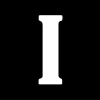
Media Decision US

The 18 Do’s and Don’ts of Cover Letters Every Job Seeker Should Know
Posted: May 8, 2024 | Last updated: May 8, 2024

Most job seekers don’t spend nearly enough time working on their cover letters, assuming that their resume is enough to get them an interview. But when there is competition, a great cover letter can be the difference between getting an interview and getting passed over.
Your cover letter is your first impression when you’re applying for a new job, and it should be a good one. It’s also an opportunity to show your personality and demonstrate why you’re a perfect fit for the role.
Writing a cover letter can be a daunting task, but you can do a few simple things to make the process easier. Here are some easy do’s and don’ts that can help you write a great cover letter that will impress employers.

Sell Yourself
Like your resume, your cover letter is your chance to brag (professionally) about why they should hire you. Be proud of your skills and accomplishments, and use them to explain why you are the best candidate for the job.
When you sit down to write a cover letter, think about what will grab the hiring manager’s attention and make them want to learn more about you. What can you say about your skills and experience that will set you apart from the other candidates?
If you can, include specific examples of times when you have excelled in a similar role.

Answer the Question: Why Do You Want to Work Here?
You can be more human and personable in your cover letter than in your resume. So be sure to tell the reader why you want the job . This is especially true if you are making a career change or have been out of work for a while.
Briefly explain your situation so that the hiring manager doesn’t have any questions about why you’re applying.
For example, you can say something as simple as: “After ten years of working in office administration, I am interested in finding new challenges in the marketing industry.”

Address How You Meet the Needs of the Organization
There’s a reason most job applications require a resume and a cover letter. A cover letter gives you a chance to communicate with the organization and elaborate on your resume. It’s your opportunity to explain how you meet the organization’s needs and why you should be selected for an interview.
When writing a cover letter, it’s important to focus on how you can help the company reach its goals. You need to do your research to do this.
Find out the company’s goals and plans for achieving them. Then, craft a cover letter that demonstrates how your skills and experience can help the company succeed.
You can also use your cover letter to address some of the other job needs that may be difficult to include on your resume. These are things like having a driver’s license and access to a vehicle or details about your availability, such as when you can start.

Personalize Each Letter
Each employer should receive a personalized cover letter, but don’t worry! You can create one or two cover letter templates and tailor them for each job, just like you should do for your resume.
People still expect your cover letter to follow the formal letter format that includes the date, your name and contact information, and the company’s contact information. Be sure to update each cover letter so that it has the correct details and is addressed to the right person. Addressing your cover letter to the wrong person or sending the wrong letter with your resume probably won’t get a second look.
If you can’t find who to address the letter to, it’s better to use something generic like “hiring manager” or “hiring team” than the wrong name.

Keep it Short
Almost everyone will tell you that your cover letter must be one page. In most cases, this is great advice. Limiting yourself to one page helps you avoid repetition and really focus on what the hiring manager needs to know.
But the truth is, your cover letter should be as long as it needs to be.
I have been successful in submitting a two-page cover letter in the past. In this case, I was applying for a position that was actually two part-time jobs combined into one full-time job. The two roles were related but required different skills, so there was no way to address them all with a single-page cover letter.

Make sure your cover letter is free of spelling and grammatical errors. Use Grammarly (which is free) to catch spelling errors, grammar mistakes, and other language issues that you may overlook. This attention to detail will show the employer that you are taking the time to make sure that your letter is professional and that you are taking the job seriously.
Proofreading your own cover letter (and resume) can be difficult because you have likely read it so many times that you no longer see the mistakes. Having someone else take a look at it with fresh eyes can be helpful. In addition, they may be able to offer suggestions for improvements or point out information that is missing.

Get Their Attention Right Away
Almost every cover letter starts in the same boring way: “I am writing to apply for the [position] job at [company].” This does not tell the employer anything about you or why you are qualified for the job.
Instead, use the first paragraph to grab the employer’s attention and make them want to read more.
You can do a few things to make your first paragraph truly stand out:
- Tell them right away why you are qualified for the position. If you have work experience that matches the required qualifications, mention it first.
- Use strong, active language to engage the employer and show that you are enthusiastic about the position.
- Talk about your transferable skills, such as those you gained from previous jobs, volunteering, leadership roles, or your side hustle. Use specific examples to demonstrate how you have used these skills in the past and how they will help you succeed in the position you are applying for.
Starting your cover letter with a strong hook will immediately set you apart from other candidates and demonstrate your dedication and enthusiasm for the role.

Use Action Words
Use strong action words on your cover letter, such as: created, managed, oversaw, and implemented. These words will demonstrate your ability to take charge and get things done. Hiring managers are looking for candidates who can take the initiative and get the job done, so make sure to highlight your relevant experience and skills by using descriptive words .

Address Employment Gaps or Potential Concerns
Your cover letter is also an opportunity to explain any gaps in your employment history or to address any concerns that the employer might have about your candidacy. For example, if you took a few years off to raise your children, use your cover letter to explain how this has prepared you to return to the workforce and be an even better employee.

If you are out of work, don’t try to hide it. Employers may eventually discover the truth, so it’s better to be honest with them from the start.
Explain your situation briefly and focus on the positive – what you have been doing to stay busy and how you are excited to put your skills to use in a new role. Honesty is always the best policy, and employers will appreciate your transparency.

Don’t Repeat Your Resume
Now that you know what you should be doing on your cover letter, let’s talk about some of the things you need to avoid.
Your cover letter is meant to elaborate on your resume, not repeat it. If it doesn’t tell us anything more than your resume already does, why are you even bothering to write one?
Hiring managers don’t want to read the same information twice. They want to see how you can add value to their organization, not just a list of your past accomplishments.
Use your cover letter to talk about your skills and experience in a more natural way. Expand on what you want an employer to know about yourself and your application.

Don’t Be Negative
If you are applying for a new job, you are either unemployed or underemployed, hate your current job , or are worried that you may be about to lose it. None of these situations are fun to be in, but you can’t let that show in your cover letter. You have to keep it positive!
You want to show the employer that you are excited about the opportunity and are confident in your ability to do the job.
If you hate your current job, focus on how you are looking for a new challenge and how you believe this job will be a better fit for you. Or, if you are worried you may lose your job, focus on how you are proactive and are already looking for new opportunities.

Don’t Discuss Why You Need the Job
Everyone knows that you need a job to make money to support yourself and your family. You don’t need to explain this or the details of your specific situation in your cover letter. Mentioning that you are hoping to buy a new house next year doesn’t matter to an employer.
What does matter to an employer is what you can do for them. They want to know how you will:
- make their company more money
- save them money
- make their company more efficient
- help them to avoid potential problems
In your cover letter, focus on what you can do for the employer, not on what they can do for you.

Don’t Make Excuses
Making excuses will only draw more attention to your weaknesses or make you sound like a difficult person to work with.
If you don’t meet 100% of the qualifications they are looking for, that’s okay – just don’t point it out! Let them decide if it’s a deal-breaker or if they are willing to train you in that specific area. They might not even notice!
Avoid making excuses for past job experiences or choices that might negatively reflect on you. If you were fired from a job, for example, simply state that the job wasn’t a good fit and move on. Don’t try to justify your actions or make excuses—this will only make you look bad.

Don’t Lie Or Exaggerate
Many people feel the temptation to lie or exaggerate their skills and experience when applying for a new job. Although lying on your application may seem like a harmless way to make yourself look more qualified, it can lead to serious consequences.
When an employer is interested in hiring you, they will conduct a background check and call your references. If you’re caught lying on your job application, you will likely be immediately disqualified. In some cases, you may even be banned from applying to that company in the future.
Lying on your application can also be a form of fraud, which is a crime in many jurisdictions. Depending on the severity of the lie, you could lose your job, be sued, or even be prosecuted for falsifying documents.
Lying or exaggerating about your experience or education can also lead to problems down the road if you are hired for a position based on false information. For example, if you claim you are proficient at using a specific program that you don’t really know much about, you will struggle in your new role. Not being able to do your job will be stressful and raise questions with your employer. Unless you’re a quick learner, you will probably find yourself job searching again within a few months.
So, the next time you’re tempted to fudge the truth on your application, remember the potential consequences. Be honest on your applications, and you’ll be much better off in the long run.

Don’t Send a Generic Letter
As mentioned, your cover letter should be unique to each employer and job opportunity. Don’t simply copy and paste the same letter for every job application. A few small tweaks are all you need to make your cover letter specific to each job and increase your chances of getting an interview.
If it’s obvious that you’ve created one cover letter and are using it repeatedly to apply to dozens of jobs, it gives the impression that you don’t really care if you get this job or not – you just want any job. And while that may be true, you don’t want to create any apprehension with an employer.

Don’t Use Clichés or Slang Terms
Avoid using clichés, slang, and overly casual language when writing a cover letter. Such language can come across as unprofessional and may not convey the message you are trying to get across in the best way possible.
Clichés include phrases like “I’m a people person” or “I’m a go-getter.” These phrases are overused and do not add anything unique to your letter.
Using slang can give the impression that you are not taking the process seriously. It can also make it difficult for the reader to understand what you are trying to say. Instead, focus on using clear and concise language, which will get your point across in a way that is both professional and respectful.
While it is important to be friendly and personable in your letter, being too casual can make you seem unprofessional and could hurt your chances of getting the job.

Don’t Include Unnecessary Personal Information
There are a few reasons why you should not include personal information in your cover letter. First, it is not necessary. The employer is only interested in your qualifications and not your personal life.
Second, while it may seem like a good idea to make yourself seem more relatable, including personal information can actually have the opposite effect. It can make you appear unprofessional.
Third, including personal information on your cover letter can be a privacy concern. If an employer knows too much about your personal life, they could potentially use this information against you. For example, if you mention that you have young children, the employer may assume that you will need to take time off for childcare. As a result, you may be passed over in favor of a candidate without the same responsibilities.
Lastly, sharing personal information in your cover letter could also lead to identity theft. If you include your home address or phone number, a savvy thief could use this information to steal your identity. By including personal information in your cover letter, you could be putting yourself at risk.
Overall, you should always err on the side of caution to protect your privacy. Stick to the facts and let your qualifications speak for themselves.

Cover Letters Are Tricky But Beneficial
It can be difficult to strike the right tone in a cover letter. You want to sound enthusiastic and professional without coming across as desperate or pushy. The goal is to show that you’re a good fit for the company, so focus on that.
If you’re not sure how to get started, plenty of cover letter examples are available online. Just make sure to tailor the letter to the specific company and position you’re applying for, and only include the skills and experience that you actually have.
With these tips, you should have no problem creating a cover letter that will stand out and help you get hired.

Quick Resume Tips
If you want to make a good impression and stand out from the competition, here are 20 resume do’s and don’ts . Following these simple tips, you can be sure that your resume will make a great impression on employers.

Add Your Side Hustle to Your Resume
Job seekers are told they need to stand out if they want to get hired. But how? One of the easiest ways is to include their side hustle on their resumes . Your side hustle is teaching valuable job skills that can make you a stronger candidate. Not mentioning this on your resume or cover letter is a mistake!
More for You
Jason Kelce reveals the 1 person he 'wouldn't allow' on stage if he was roasted
Joe Biden Gets Biggest-Ever Poll Lead Over Trump in Battleground State
Housing has hit rock bottom, says Redfin CEO Glenn Kelman
9 Backyard Gazebo Ideas for the Summer
The health condition many women are developing after COVID
I moved to Finland after reading it was the happiest place on earth. Here are 6 things that surprised me living and working here.
Map reveals best places to live in the US if nuclear war breaks out
Renewed and Canceled TV Shows 2024 Guide
Iowa Gov. Kim Reynolds: This is unconscionable
Amid Tesla’s bloodletting, top exec sends Musk a message: The company has ‘taken its pound of flesh’
35 Bathroom Cleaning Hacks That Really Work, According to Pros
The Best Local Ice Cream Shop in Every State
Here is the true value of having a fully paid-off home in America — especially when you're heading into retirement
The 30 Most Iconic Supermodels of the '80s
Video Shows Massive Tornado Roaring Through Tennessee: 'Extremely Violent'
The Best Ground Pokémon of All Time Ranked
Trump lashes out at Paul Ryan after ex-House speaker declares he ‘lacks character’ for being president
Boeing jet skids off runway, injuring at least 10
The state with the best SAT scores in America, according to data—and see the rest of the top 30
Suze Orman scoffed at a $28K insurance quote for her Florida condo — says the insurer 'will probably contest' any claim she files anyway. Why this alarming trend threatens US home ownership
Protect your data
This site uses cookies and related technologies for site operation, and analytics as described in our Privacy Policy . You may choose to consent to our use of these technologies, reject non-essential technologies, or further manage your preferences.
- Resume and Cover Letter
- 10 of the Worst Cover Letter...
10 of the Worst Cover Letter Mistakes to Avoid
8 min read · Updated on March 10, 2022
.jpg)
Make sure your cover letter helps your candidacy by avoiding these all-too-common mistakes.
Once you've updated your professional resume , it's time to prepare your job applications for submission to hiring managers. This usually involves making some small tweaks to your resume and creating a cover letter to accompany your application.
But aren't cover letters a thing of the past?
Yes and no. While 74 percent of recruiters don't find the cover letter to be an important factor when evaluating candidates, the remaining percentage do. And since you have no way of knowing which type of recruiter will receive your application, it's best to cover your bases and include a cover letter with every job application. As an added bonus, a reported 53 percent of employers admit they prefer candidates to send a cover letter when applying for a job.
However, not just any cover letter will do. If you're going to take the time to craft this document, make sure it helps, not hurts, your candidacy, by following cover letter dos and don'ts. Below are 10 common and costly mistakes to avoid when writing your next cover letter .
Cover Letter Mistake #1: Lack of research
Thanks to the Internet, there's little excuse to not personalize your cover letters. Whenever possible, research the name of the hiring manager or recruiter (if it's not listed on the actual job post) and the company who's filling the position, and use this information to customize your opening document. If you skip this step, you're sending the message to the reader that you don't really care enough about the position to do your homework. In a world where employers are inundated with applications, any excuse to eliminate candidates along the application process will do. Don't let this cover letter mistake give them a reason to cut you from the pile.
There are some exceptions to this rule. If you're responding to an anonymous job posting, you're not expected to include the name of the company or the hiring manager in the cover letter. When a company goes out of its way to keep its name and the names of its employees confidential, you can assume the hiring manager won't take off points if you use a generic opener.
Cover Letter Mistake #2: Overly formal or casual greetings
Whenever you're applying for a position or preparing for an interview, take the company's culture into account. You can get a better sense of the employer's brand by checking out its Careers section online, reading reviews on Glassdoor, searching for its profile on The Muse , following the social media accounts the company set up for recruitment purposes, and talking to your networking connections who've worked at the organization. This will help you decide if you're better off going with a “Hello Jeff” or a “Dear Mr. Berger” type of greeting.
If you're unable to address your cover letter to a specific person, steer clear of incredibly formal introductions, such as “To Whom It May Concern,” as they are not conversational and can be considered off-putting. The same goes for super casual openers like “Hi!” Even if you're dealing with a startup that prides themselves on being non-traditional, this cover letter greeting is a little too laid back for your first communication and may have the reader questioning your professionalism.
Play it safe and stick with a gender-neutral opener such as “Dear Hiring Manager” or “Dear Recruiter.”
Cover Letter Mistake #3: Talking all about me, me, me
Think of your cover letter as your sales pitch to the hiring manager. Instead of spending the entire time talking about yourself and your wants and needs, consider the needs of your prospective employer. Your potential boss is the one who will (hopefully) read your cover letter, after all.
Review the job description again and check out the latest news on the company. Ask yourself why the organization is hiring for this role. In other words, what pain point will this position solve? When you can relate to the hiring manager's concerns and position your skills as the solution to his or her needs, you have a better chance of avoiding cover letter mistakes and capturing the reader's attention.
Cover Letter Mistake #4: Repeating your entire resume
Remember, the recruiter already has your resume - there's no need to rehash your entire job history when writing your cover letter. In fact, I believe this is why so many employers disregard the cover letter; they've read so many bad cover letters that merely summarize their candidates' resumes, that they see no need to read them.
One cover letter tip is to surprise the hiring manager by using your opening to demonstrate your understanding of the company's position in the marketplace and its needs and then highlight your work experience and accomplishments that speak to these requirements.
Avoid these common cover letter mistakes. Hire a TopResume writer today .
Cover Letter Mistake #5: Generic messaging
Even if you're applying to an anonymous job listing, a common cover letter mistake is using boilerplate text. While your introduction may not be as specific as it would be for a position where the employer is known, this doesn't give you license to use a generic template for the main sections of your cover letter.
Based upon the job description, make a list of the top 3-5 requirements for the role. This may have to do with your knowledge, skills, and experience of a certain topic or an industry, your experience performing a particular task, or your education and other credentials. Then, brainstorm how you possess each prerequisite, referencing a specific contribution, accomplishment, or experience from your work history that illustrates these qualifications. Summarize this information in a paragraph or a set of bullets. This is a great way to customize your cover letter and grab the reader's attention.
Cover Letter Mistake #6: Not following instructions
As I previously mentioned, some employers, especially those in the healthcare, education, and legal sector, still value a cover letter and will request one in their job description. Do yourself a favor and re-read the job description carefully to provide context to your cover letter dos and don'ts. Oftentimes the employer will request certain information to be included in the cover letter. The last thing you want to do is ignore this request, as the reader will assume you are not detail-oriented and unable to follow the simplest of instructions.
Cover Letter Mistake #7: Typos
When you're competing against a large pool of candidates for one role, the smallest cover letter mistakes could be used to eliminate you from the pile. These days, we've grown all too reliant on spell-check and autocorrect to edit our communication. It's easy to overlook the small mistakes, such as using “higher” when you really meant to say “hire.” Don't let these silly details derail your job application.
Follow this simple cover letter tip: Reread your cover letter. Then read it again. Then hand it over to a trusted friend. You know, the one that majored in English. If you're looking for some resources to improve your grammar and punctuation, check out Lynne Truss' book, “ Eats, Shoots & Leaves: The Zero Tolerance Approach to Punctuation ,” and “ Woe is I: The Grammarphobe's Guide to Better English in Plain English ” by Patricia T. O'Conner. They're great reads!
Cover Letter Mistake #8: Writing a novel
If recruiters spend an average of six seconds scanning your resume before deciding if you're a fit, how long do you think they'll spend reading your cover letter? Here's another set of cover letter dos and don'ts: your cover letter shouldn't be any longer than is necessary to get your points across. And it definitely shouldn't exceed one page.
Also, keep its readability in mind. Similar to your resume, try to create white space in your cover letter by avoiding dense blocks of text.
Cover Letter Mistake #9: Going off brand
Whether you're searching for a new job or managing your career path, it's important to pay close attention to how you present your professional brand to others — online, on paper, and face to face. To that end, another cover letter tip is to give it the same look and feel as your resume. If you're uploading your cover letter as a separate document to an online application, ensure it uses the same header as your resume. Also, make sure the font type, color, and size, the contact information you provide, and even the name you use on both documents remain consistent.
Cover Letter Mistake #10: TMI
While you can use a cover letter to explain an employment gap or your interest in relocating to a new city, don't overshare your personal details with a prospective employer. The recruiter doesn't need to know the gory details of your back surgery or how you had your heart broken and need to find a new city to call home. These extraneous details can't be used as selling points and will only detract from your qualifications and candidacy.
Your resume should be mistake free as well. Is yours? Find out with a free resume review .
Recommended Reading:
- Do Hiring Managers Actually Read Cover Letters?
- How to Be a Great Candidate Even if You're Under-Qualified for the Job
- How to Write a Catchy Cover Letter
Related Articles:
How to Maximize Your Resume Action Words to Wow the Employer
Resume Spelling and Accent Explained
Guide to Writing a Great Resume with No Work Experience
See how your resume stacks up.
Career Advice Newsletter
Our experts gather the best career & resume tips weekly. Delivered weekly, always free.
Thanks! Career advice is on its way.
Share this article:
Let's stay in touch.
Subscribe today to get job tips and career advice that will come in handy.
Your information is secure. Please read our privacy policy for more information.
How to Avoid Generic Phrases in Your Cover Letter

In the competitive job market, standing out from the crowd is crucial. One way to achieve this is by writing an effective cover letter that avoids generic phrases. This can be a game-changer. After reading this blog, you'll master the art of personalizing your job applications with convincing arguments about why you're the best fit for a role.
Why You Must Avoid Generic Phrases
Many candidates, in the rush to apply for a job, populate their cover letter with generic phrases. Although this may save time in the short term, it can decrease your chances of securing an interview.
Spotting Generic Phrases
Phrases such as 'I'm a team player' or 'I work well under pressure' are overused and do not provide specific examples of your skills and experience. Employers want to see unique, concrete evidence of your abilities.
Tips to Avoid Generic Phrases
To 'avoid generic phrases', focus on your achievements and quantify them wherever possible. Instead of stating that you're a team player, demonstrate this by giving an example of when your team achieved a significant result.
Utilize professional language rather than jargon or clichés and stick to the specific requirements of the job role. Always proofread your cover letter to avoid repetitions and maintain a precise, engaging tone.
Crafting an 'Effective Cover Letter'
Creating a compelling cover letter involves communicating your value proposition effectively. Tailor your skills and achievements to the job role and avoid generic phrases. Remember, your cover letter is not simply a repetition of your resume; it's your chance to explain how your unique experience and skills align with the job requirements.
To sum it up, avoiding generic phrases can make you stand out from the crowd and increase your chances of getting an interview invite. It's about time we break away from generic, predictable cover letters, don't you agree?
Get your personalized cover letter, instantly.
Keywords and phrases for your cover letter
If you want to score an interview and land your dream job, you need a great cover letter and resume. Crafting an engaging cover letter involves much more than highlighting what you do well and why you want to work there. You’ve also got to use the right cover letter keywords. Here’s what you need to know.
If you want to score an interview and land your dream job, you need a great cover letter and resume. Crafting an engaging cover letter involves much more than highlighting what you do well and why you want to work there. You’ve also got to use the right cover letter keywords. Here’s what you need to know.
What are cover letter keywords?
Cover letter keywords are phrases or terms that will stand out to hiring teams when they review your application. For continuity’s sake, you should also include cover letter phrases in your resume . After all, these documents are meant to be complementary tools that give hiring teams a glimpse into who you are, your skill set, and your aptitude.
You are probably wondering, “Do human resources professionals really look for cover letter keywords?” Absolutely! Many actively look for terms that illustrate you understand the position and have read the job description. They may also be subconsciously looking for certain phrases.
Additionally, 60% of HR professionals are using artificial intelligence for hiring and recruiting purposes. (1) AI-powered CV and resume review tools may scan your documents for select phrases and terms. If you don’t include them, your application may get filtered out of the selection process.
Phrases and keywords can add spice to your cover letter
The top cover letters are well-organized, concise, impactful, and engaging. By adhering to cover letter best practices, you can stand out and increase your odds of landing an interview. Cover letter keywords play a key role in spicing up your application and differentiating you from the average candidate.
When working key terms into your resume and cover letter, focus on industry- and role-specific terms. For example, if you are applying to an IT position, mention certifications or specific skills that match the role you want.
Not sure which phrases to incorporate into your application? Review the job description and build your list around the employer’s list of qualifications, preferred abilities, and summary of the role. If you use similar language to that found in the job description, the employer will notice.
However, be careful not to use too many cliche keywords. For the most part, you should avoid things like “punctual,” “great communication,” or “organized.” While these are valuable traits, they are typically prerequisites for any job. If you are hired, it’s presumed that you are going to show up on time and stay organized.
Employers want to know what makes you different from everyone else. That’s where industry-specific cover letter keywords really shine.
Check out several cover letter examples for a better understanding of what to do (and what not to do) when writing up your job application. You can also get helpful suggestions from resume examples , CV examples , and CV templates .
Impactful keywords and phrases to include in your cover letter
Regardless of what role you are applying for, it’s important to use terminology that showcases your value to the organization. Again, avoid cliches but instead focus on action language. Some great action verbs you can use include:
- Transformed
- Spearheaded
Use these words with more common descriptors to make a connection between your involvement and what the project or task required. For instance, you could say that you “improved client satisfaction” and then explain what you did to achieve these results. This approach is much more impactful than saying generic things like “I offer great customer service.”
This cliche phrase leaves hiring teams with more questions than answers. They want to know what you did that made your customer service “great.” Conversely, using action words and describing what you achieved showcases how you might bring value to their business.
For technical roles, mention specific technologies, methodologies, or frameworks. For example, you can mention things like “Agile project management” or “Python programming.” Be careful not to mention any skills unless you are very proficient in them. If you make it to the interview stage, most employers are going to ask you to provide examples of your work or elaborate on your skills.
Remember, you can’t just stuff a bunch of terms in your cover letter and hope for the best. The document needs a natural and engaging flow. If you are overhauling your professional documents, use cover letter templates to help you maximize engagement and readability. You can also use resume templates to ensure continuity across all of your documents.
Expert tip:
Tailoring your cover letter with job-specific keywords is crucial, but it’s equally important to narrate how you embody these terms through your experiences. This approach transforms your application from a list of skills to a compelling story of your professional journey.
Cliches and basic keywords and phrases to avoid
When crafting a cover letter, it’s easy to fall into the trap of using cliches and generic terms that recruiters have encountered hundreds of times. Though these terms are popular, they can cause your application to blend in, not stand out. Here are some examples of cliches and basic cover letter keywords to avoid:
- Hard Worker: This is overly vague and expected of any candidate
- Team Player: While important, it’s better to demonstrate this through specific examples
- Self-Motivated: Instead of stating it, show how your motivation has produced results
- Problem Solver: This is too generic without context. Highlight a specific issue you resolved
- Dynamic: This adjective gets used so much that it has lost its impact
- People Person: Talk about how you’ve successfully worked with teams or led projects
- Detail-Oriented: Share an instance where you noticed the little things and it mattered
- Proactive: Provide examples where you took initiative beyond your usual responsibilities
- Results-Driven: Quantify your achievements to prove your focus on results
- Passionate: Overused and subjective
- Strategic Thinker: Detail a situation where you saw the big picture and made a difference
- Go-Getter: As with “proactive,” it’s better to illustrate this through examples
- Innovative: Share something you contributed to rather than using this generic term
- Creative Thinker: Mention a hurdle you overcame by flexing your creativity
- Excellent Communicator: Provide examples of how you used this skill in a professional setting
- Track Record of Success: Quantify what you’ve achieved to make your words more meaningful
- Responsible: This is expected; instead, share how you’ve managed your responsibilities effectively
- Extensive Experience: Specify what this is and how it’s relevant
- Skilled in [Generic Skill]: Don’t just say you have an ability — showcase it
- Highly Qualified: Share how your qualifications match the job’s requirements
By avoiding these cliches and focusing on specific, quantifiable achievements and experience, you can create a cover letter that stands out. Remember, the goal is to show what makes you valuable and how it aligns with the needs of the employer.
Looking for more helpful tips on how to stand out in the hiring process? Read some cover letter articles and resume articles that detail best practices and things to avoid. It’s also important to find out how to end a cover letter so you’ll make the best impression possible.
“ Employers want to know what makes you different from everyone else. That’s where industry-specific cover letter keywords really shine.”
Integrating cover letter keywords into your application can be a true game-changer. Here are some simple tips to help you make the most of eye-catching buzzwords and phrases:
- Don’t oversaturate your cover letter with phrases; use them strategically
- Avoid too much technical jargon
- Use similar keywords in both your resume and cover letter
- Treat these documents as complementary and minimize redundancy
- Whenever possible, back up your keywords with hard data
That last tip is probably one of the most impactful. Making a statement is not nearly as powerful as supporting your claims with specific numbers. For instance, if you led a successful project, share what you achieved, such as beating the deadline by one week or reducing costs by 10%.
Stand out with powerful cover letter keywords and phrases
Cover letter keywords are an important way to differentiate yourself from other job seekers. As you write your next resume, CV, or cover letter, make sure to incorporate target phrases that align with what hiring teams are looking for in a candidate. Before you know it, you’ll be scheduling interviews and making progress in your search for your dream job.
Source:
(1) Jobsolv (via Medium.com) : How Jobseekers Can Leverage AI in The Hiring Process
Get ahead of the competition
Make your job applications stand-out from other candidates.

Video Cover Letters

Who to address cover letter when recipient is unknown

Cover Letter Tips for the Perfect Application

UAW Unionization at Volkswagen Confirmed, Mercedes Alabama Vote In May
The UAW Southern expansion plans are moving forward as planned with a Volkswagen win secured. The Mercedes election in Alabama will be the next frontier, scheduled to tak...
After Project Shutdowns, Apple Layoffs Decision to Affect 700 Employees
McKinsey’s 9 Months Pay Leave Offer Extends Support for Finding a New Job
Subway Franchisees Fined $218K for Illegally Pocketing Employees' Tips
HR's Guide to Conflict Resolution: When and How to Intervene
HR’s role in addressing workplace conflicts is an essential cornerstone in any business, right from identifying the source of the conflict to devising a strategy that k...
Break Out of the Robotic Mold—Learn How to Build Rapport With Employees
Why Your Business Should Embrace Fair Chance Hiring Now
Getting Started Is Harder Than It Looks—Tips for Starting a New Job
- Recruitment
- Training & Development
Asking for Feedback at Work Is How You Can Choose to Grow
Requesting feedback from a manager can feel like a challenge but it can also set you on track to achieving all your career goals much faster as you make improvements that...
Evolving with the Shifting World of Employment Benefits
The Art of Asking the Right Questions—How to Conduct Stay Interviews
Nurturing Your Team: Employee Appreciation Messages to Boost Morale
- Compensation
- Employee Benefits
- Outsourcing
- Workplace Culture
What is an HRIS? A Beginner's Guide to Human Resource Information Systems
There are many benefits of using an HRIS that allow for data-driven decision making, enhance the employee experience, simply cost savings, and improve efficiency overall....
How the Age Discrimination in Employment Act Protects Older Employees
Learning to Let Go: A Comprehensive Guide to Sample Termination Letters

Mastering HR: Best HRM Books for Beginners to Read in 2024
- Tools & Technology
- Q & A with Jane
- HR Tools & Technology
Interview with Lynne Oldham: A Masterclass on Diversity and Performance
In an exclusive interview, Lynne Oldham, Chief People Officer at Stash, shares expert insights on driving diversity and performance in today’s workplace. ...
Tracey Franklin on Building an Engine of Innovation Through Talent
Paige Ross on Crafting Talent and Well-being at Blackstone
Lisa Esparza on The Road to Inclusive Excellence
- Subscribe Now
- Current Issue
- Past Issues
- Advertise With Us
January 2024
October 2023
- Great Workplaces
- DEI Leaders
- HR Thought Leaders
Cover Letter Phrases You Must Avoid
- Anna Verasai
- September 12, 2022
The processes involved in a job application cannot be skipped and crafting your cover letter is one of them. The problem that most people face when writing one is the common mistakes with certain cover letter words and phrases.
A cover letter goes beyond listing skills rather it’s a good point to sell yourself and wow your hiring manager. Why? Get this; there are so many job applicants for that same job. There’s no way an employer will accept every applicant. Instead, they will take one or a few persons out of the pool. So do you think your cover letter will make you part of the 1%?
Well, whatever answer you gave to that question will be attended to in this article. You’ll find out what cover letter phrases to avoid and the ones to replace them with.

A good cover letter sets the right tone for your job application.
What are the cover letter phrases to avoid and what are good words for a cover letter?
Your cover letter words and phrases do matter. It could get you in the long run in the application process and later land the job. Or it could archive your application to the “Not interested” folder . Whatever the case might be, everyone will agree that they prefer the first option to land a job.
With that being said, you must take note of cover letter phrases to avoid. These are the cover letter words and phrases that can immediately turn off your hiring manager’s zeal to reach out to you. Let’s look at a few:
As daunting as it sounds, the word “best” is one of the cover letter phrases to avoid at all costs. Why? Because every other applicant is an awesome candidate too. No one will say they are the worst fit for the job. You must avoid using this word in any part of your cover letter. Most employers are already used to seeing this mistake. Once they spot it in your cover letter, they won’t hesitate to archive your application. So what should you say instead of this? We’ve got you.
You can say this in place of “Best”
- Outstanding
“I think I’d be a great fit”
When it comes to saying things like “I think”, “I feel” or “I believe”, there’s a not-so-confident thought that could stick to the mind of your hiring manager. It’s okay to feel like you are a great candidate for the job but there’s no need to say that in your cover letter. Saying this in your cover letter will only make your hiring manager see you as someone who isn’t sure if they can handle the task—and no employer wants that either. So what can you say instead?
You can say this in place of “I think I’d be a great fit”
- My experience in customer service will make me an outstanding customer support manager.
- My WordPress and problem-solving skills would make me a great web developer for your company.
“I’m a good…”
Just like “best”, the term “good” makes no difference in your cover letter. It just shows the employer that you are just like every other applicant. That’s why you need to add some spice to it. Avoiding this cover letter word and phrase will help you in the long run.
What you can say in place of “I’m a good…”
- I’m an experienced manager.
- I’m a talented social media creator.
- I’m an expert in digital marketing.
- I’m skilled in copywriting.
- I’m a seasoned writer.
“To whom it may concern”
Your cover letter is more of a personal letter and less of a letter written to a robot. That is why it should be as personalized as possible. One of the cover letter words and phrases to avoid is “To whom it may concern.” This phrase says a lot about you as a job applicant. It shows you did not bother to find the hiring manager ‘s name or even do a bit of research. It’s worse when the hiring manager’s name was clearly stated in the job application. You’ll be noted as a candidate that does not pay attention to details and so much more. To avoid these assumptions, you should write a personalized cover letter. How?
What to write in place of “To whom it may concern”
- Dear/Hello [Name]
- Dear/Hello hiring manager X [company’s name]—this should be used when the hiring manager’s name can’t be found.
Your cover letter words and phrases do matter. They are the foundation that can determine whether your application will be accepted or rejected. We advise that you use appropriate words and phrases when crafting one.

Stay tuned!
We don’t want you to miss anything. Subscribe to our newsletter and stay updated on the latest HR news and trends.
First name Last name Email
Similar Articles
Nike Layoffs Announcement to Affect 740 Employees by June 28
What is an HRIS? A Beginner’s Guide to Human Resource Information Systems
HR’s Guide to Conflict Resolution: When and How to Intervene
Leave a reply cancel reply.
Your email address will not be published. Required fields are marked *
Save my name, email, and website in this browser for the next time I comment.
CURRENT ISSUE

FEATURED POSTS
- New Employee Welcome Message Examples : Welcome To The Team
You Can Retract A Resignation, Here’s How
- How To Write An Appraisal and Raise Request Email
- 10 Fresh Ways to Write ‘Please Find Attached’
6 Different Types of Compensation Plans & Benefits
- 73 Creative Job Titles in Corporate America
- How to Write a Sick Day Email (with Examples)
- How to write a Positive Employee Reference (with examples)
- How to Write Vacation Request Email (Samples)
- Out of Office Email Message Examples – ‘On Vacation’
- Warning Letter to Employee | Sample Warning Letters
- 10 Creative Ways to Write ‘Sorry for the Late Reply’ Email
- 30 Alternatives to Warm Wishes for Every Situation
- Incorporating 160 Effective Performance Phrases in Your Performance Appraisal Review Templates
- 20 alternatives to end an email when “Warm Regards” is too boring
- Disciplinary Action Letter for Misconduct to Employees (Sample Letters)
- How To Answer ‘Tell Me About Yourself’ In A Job Interview
- Office Christmas Party Invitation Email Templates
- Advertise With US
© 2024 The HR Digest. All Rights Reserved. powered by idmerit


Popular searches
Land your dream job, cover letter clichés to avoid.

If you’re on the job hunt, chances are you’ve written more than your fair share of cover letters, and it can certainly be a challenge to keep each letter fresh and interesting. One simple way to up your job application game is to recognize and root out cover letter clichés, including words and phrases you’ve probably heard a million times.
Calling yourself "a go-getter," "a self-starter," or "detail-oriented" won’t tell your potential employer much about what makes you unique. And clichés can work against you in another way; readers may interpret vague positive phrases as a way to disguise your lack of qualifications for the job.
Don’t sell yourself short. Instead, use your limited cover letter space to tell a story no other applicant can.
Retire clichéd buzzwords
Adjectives like dynamic, proactive, motivated , and responsible might seem like great words to describe yourself—who doesn’t want an employee like that? But employers are a lot more interested in specific accomplishments than general traits. After all, most workplaces expect employees to have motivation, dedication, and responsibility; without examples to back them up, these buzzwords only reiterate the obvious.
Anyone can say they’re a hard worker, but it’s a lot more challenging to put in the work and produce measurable results on a long-term project. Similarly, it’s easy to claim you’re an innovative forward-thinker, but readers would rather hear what innovations you came up with (think of the Writing 101 "Show, don’t tell" adage).
- If you describe yourself as a "team player," for instance, think of the last time you worked on a team—what did you learn from that experience? Maybe you interacted with people in different departments, taught a skill to a co-worker, or compromised to achieve a goal together.
- If you claim to be "detail-oriented," another frequent cover letter cliché, can you point to a task that required you to interpret data, help out with event planning logistics, or scrutinize details in another way?
- If you pride yourself on being a "problem-solver," describe a workplace problem you faced and the solution you discovered. You get the idea.
Watch out for words like "unique" and "expert" as well; for example, stating you’re "uniquely qualified" for a job. Unless you have an unusual niche skill set, chances are your expertise is more common than you think. If you do have accomplishments, credentials, or experiences that set you apart from the average candidate, tell these stories and let them speak for themselves.
Reconsider these clichéd phrases
I think outside the box.
I go the extra mile.
I’m an independent self-starter.
I’m highly organized.
I have excellent communication skills.
I thrive in a fast-paced environment.
I’m a quick learner.
Any of these cover letter clichés, and others like them, risk wasting space and making you sound like all the other candidates out there.
Try using this trick to help you avoid clichés as you’re writing: if a phrase sounds familiar or like a statement you’ve heard before, maybe in a job advertisement, there’s likely a better way to get your point across. Usually this involves pinning down a concrete example of the traits these phrases describe, like a seminar you helped organize ( I’m highly organized ), a content management system you mastered in a few weeks ( I’m a quick learner ), or a language you taught yourself in quarantine ( I’m an independent self-starter ).
Many cover letter writers mention skill sets they’re "familiar with" or have "knowledge of." While these phrases aren’t exactly clichés, they’re still vague and unclear. Familiarity could mean weeks or months of classroom and working experience, or simply an awareness you’ve gained from studying and observing others. At worst, such general phrasing can suggest you’re more comfortable with a skill than you actually are, which can backfire if you need to use the skill on the job. Avoid possible confusion by being upfront about just how much expertise you have.
As a final defense against cover letter clichés, reread your letter and look for any "I" phrases and statements you can change or eliminate. You may have quite a few "I" statements, naturally, since you’re writing about yourself in the first person. Try changing some of them to "you" statements that highlight what the organization is looking for. This helps immensely when you’re tailoring a cover letter to a job , and it shows the reader you’ve done your homework. "I thrive in a fast-paced environment" could become "Your fast-paced atmosphere requires employees who can make smart decisions under pressure. At my internship with X organization, which ran on a tight schedule, I..."
Go from general to specific
You may have heard a cover letter is the place to tell employers something they couldn’t find out from your resume. Often this means making connections with a reader by telling stories, showing examples, and demonstrating your passion for the industry.
If you’re tempted to take the shortcut of a cover letter cliché, think about a brief anecdote you could use instead. Your reader is more likely to remember an example of hard work or innovative thinking, even in a brief two-sentence story, than they are to remember an overused phrase.
Numbers and metrics are an easy way to get specific, whenever you can provide them. Think of any way you can "quantify" achievements—how many people you mentored or served in your role, how many subscribers read the newsletter you edited, etc. These details don’t take up much space, and they show your impact in a quick and measurable way.
Keep in mind your goal is for the reader to remember you. Employers are sifting through piles of repetitive cover letters; you want to be the one who says something different.
Did you enjoy this post? If you’re looking to spruce up your resume with more impactful language, be sure to Try Using These Action Verbs to Get Your Resume Noticed .
Amy Bergen is a writer based in Portland, Maine. She has experience in the social impact space in Baltimore, Maryland, the educational museum sphere in Columbus, Ohio, and the literary world of New York City.
Explore Jobs on Idealist
Career Network for student Scientists and Postdocs at Yale
Creating a platform for discussion of scientific careers.
- Leadership Team
- Our Founders
- Event Descriptions
- Past CNSPY Events
- Become a career mentor/advisor
- Become a CNSPY board member
- Collaborate with CNSPY
- Latest Post
- Meet the CNSPY Blogger
- Personal Spotlight Series
- Careers in Focus
Common Cover Letter Phrases to Avoid
So, you’ve written your cover letter… you’ve customized it for the company and position you’re seeking, you’ve opened and closed strongly, and you’ve stated your case. You’re ready to submit your application, but before you do, go back through your cover letter one more time and eliminate these commonly used phrases because they can kill even the strongest of cover letters.
1) “I think I’d be a great fit.”
Opinion phrases can inadvertently cast doubt on what you’re saying. You “think” you’d be a great fit? Why don’t you know you’d be a great fit? Would other people disagree with you and think you wouldn’t be great fit? Why do you only think you’d be a good fit? You don’t want to leave these thoughts in the hiring manager’s mind.
These types of opinion phrases can make you sound insecure. Sure, you may have simply been trying to avoid sounding too cocky, but instead, you’ve undermined your own abilities. Don’t use opinion phrases. Period. And keep in mind that sentences such as “I’m confident I’d be a good fit” are also opinion phrases that can cause similar problems.
Instead, drop the opinion part of the sentence and just state your position because if you’re saying it, it’s obviously your opinion. You don’t need to clarify that it’s your opinion. Moreover, simply stating, “I’d be a great fit,” is far more convincing than the same message with “I think” or “I’m confident” in front of it. It’s also shorter and gets right to the point.
Cover letters often highlight our best qualities, but if everything is just “good” – i.e., “I’m a good writer,” “I have good project management skills,” “I’m good at working with other people” – we actually sound rather average.
There are so many more exciting adjectives that we could use that will really make us sound spectacular. For example: “I’m an accomplished writer,” “I have expert project management skills,” and “I’m efficient and experienced at working with other people.” These small word choice changes make these phrases take on a whole different connotation. Clearly the person being described in this paragraph is much more qualified than the one described in the first paragraph.
Here’s a list of many other words that you can substitute for the word “good” that will help you shine throughout your cover letter:
Skilled, talented, experience, accomplished, expert, successful, apt, seasoned, thorough, capable, competent, efficient, etc.
Use any one of these (and more) words to replace “good” and see how quickly your cover letter improves.
3) “This position would help me because…”
Sometimes we may feel inclined to describe how a position fits well with us and our goals in efforts to explain why we’re applying for the job. Thus, it may seem fitting to describe how a certain job would help you further develop your leadership skills, for example. However, the hiring manager truly does not care how this job can help you. He is primarily concerned with how you will help him and the company . That’s it.
So instead of trying to use these types of arguments to explain why you’re applying for the job, use a different tactic. Simply describe your abilities in the context of the company’s needs and then detail how, together, you two can achieve the company’s desired results and goals. You can fix their problems and address their needs – THAT is why you are applying for the job.
4) “As you can see on my resume…”
If the hiring manager can see it on your resume, you don’t need to highlight its presence there. They can see it for themselves.
Similar to point #1, this is a phrase that could indicate some insecurity on your part. If you have the experience, it should be blatantly obvious on your resume; thus, you shouldn’t have to point it out.
So instead of saying, “As you can see on my resume, I’ve been working in medical communications for the last three years; thus, I will be an asset to the marketing department of XYZ pharmaceutical company,” drop the first part, and just say, “I’ve been working in medical communications for the last three years; thus, I will be an asset to the marketing department of XYZ pharmaceutical company.” This is a more direct statement that is not only stronger, but also projects unwavering confidence.
5) “I’m the best candidate because…”
Speaking of confidence… confidence in a cover letter is great, but there is a fine line between confident and cocky. If you are overly confident, you will merely appear arrogant.
You may believe you are the “best” candidate, but without reading ALL of the applications yourself, you really can’t be completely sure that you are indeed THE best candidate for the position. And imagine if you were the hiring manager and you read 10 cover letters in a row, all of which stated that they were either “the best candidate,” “the ideal candidate,” or “the perfect candidate.” That would get pretty annoying rather quickly and you’d probably dismiss all of them.
Instead, remain confident without crossing the line into arrogance and cockiness by using any of these words:
Excellent, great, terrific, strong, outstanding, unique, etc.
Conveying the idea that you would be “a strong candidate” for the position is much more accurate, demonstrates your confidence, and doesn’t overstate your abilities.
Eliminating these five common phrases from your cover letter will instantly make your letter sound stronger, and, in turn, your letter will be much more effective.
Your cover letter is your first opportunity to impress the hiring manager. Don’t unintentionally doubt your own abilities, make yourself sound average, or frustrate the hiring manager in the process. You never get a second chance to make a first impression, and with cover letters, that first impression comes across in your word choice, so make sure you choose words and phrases that make you shine!
** Review your cover letter(s) for these mistakes, correct them, and let us know how it goes! **
Share your thoughts below by clicking the “Leave a Reply” link or by clicking the chat bubble in the top right of the post.

Previous post
14 comments.
August 13, 2021 at 6:52 am
Thanks) https://comprarcialis5mg.org/
February 5, 2022 at 6:16 am
Nice and informative post and quality photos. I have subscribed to your posts and feed. As a marketing communications student, I must say that I found the post relevant to my subject area. Marketing Dissertation Topics Thanks, Helen
February 8, 2022 at 9:14 am
A very good post indeed with some amazing photos. It’s a shame about some of the responses. A very good post and an excellent blog. I am now a follower. MBA Dissertations Thanks, Mark.
April 17, 2022 at 5:24 am
I have done research on ‘ how to write a cover letter for a job application ‘ and ‘ cover letter templates ‘. Your article is one of the best articles I’ve ever received. You have discussed some subtle things very seriously.Which other experts didn’t discuss much.But with the exception of your first point, almost all career experts says the same thing. But they speaking differently about your first point.
February 17, 2023 at 12:57 am
Number 1 is the conventional wisdom of extroverted networkers. Number 2 is what introverts should do. https://www.mywatchesuk.com/
May 19, 2023 at 3:03 pm
Thank you for useful sharing. vozol 10000
August 28, 2023 at 3:37 am
è stata la prima vera La cassa resistente all’acqua era sinonimo di orologeria, che arrivò molto più tardi e stabilì il rivoluzionario meccanismo del rotore che diede inizio alla moderna dinastia a carica automatica. è passato molto tempo da allora, ma i due istinti del successo di Rolex hublot replica non sono stati travolti dal passare del tempo, dalle nuove mode, ma hanno acquisito negli anni il lustro più ambito, il grande Timeless.
November 10, 2023 at 1:53 am
repliche orologi Rolex è un marchio noto e ammirato che può essere visualizzato come accessorio di moda, ancor più che come strumento con elevate capacità di misurazione del tempo, e l’azienda svizzera è uno dei principali produttori di orologi di fascia alta.
November 12, 2023 at 9:13 pm
The surfaces of the pinions and wheels are completely flat and highly polished to within exceptionally uniform tolerances. All finishing work on the main plate and bridges, luxury replica watches are by hand to achieve the highest possible levels of surface finish. The screws and all steel parts are finished and polished by hand. The titanium case is made by the workshop that Voutilainen helped establish
December 13, 2023 at 9:50 pm
Great web site you have here.. It’s hard to find high-quality writing like yours these days. I really appreciate people like you! Take care!! Karya Bintang Abadi
January 2, 2024 at 2:16 am
Outstanding effort! Your effort and creativity can be seen in this work.
Spotify Ad Blocker
Spotify ad blocker is the ultimate solution that allows you to enjoy your favorite tunes without those disturbing ads interrupting your music streaming experience on Spotify, So it’s time to say goodbye to those annoying ads that break the rhythm of your playlists.
January 2, 2024 at 2:17 am
newzproz NewzProz – Explore a universe of varied perspectives! Our blogging platform provides interesting information on a wide range of subjects, including science, culture, technology, and lifestyle. Discover knowledgeable viewpoints, perceptive essays, and provocative writings written by committed authors. With our extensive selection of engaging blogs, join the discussion and expand your perspective.
January 2, 2024 at 2:19 am
Great job! Your effort and creativity shine through in this work. Keep up the good work, and I look forward to seeing more from you in the future. Anabel Gomez Lopez tamales
Anabel Gomez Lopez tamales committed a cruel crime of selling human flesh on Mexican streets and she confessed her crimes of killing so many people. Most of her victims were young women. After her heinous and cruel crime she was sentenced for 25 years of prison.
January 2, 2024 at 2:21 am
Excellent work! This work demonstrates your hard work and inventiveness. Keep up the fantastic job, and I hope to see more of you in the future.
Factstalks- Explore a universe of varied perspectives! Our blogging platform provides interesting information on a wide range of subjects, including science, culture, technology, and lifestyle. Discover knowledgeable viewpoints, perceptive essays, and provocative writings written by committed authors. With our extensive selection of engaging blogs, join the discussion and expand your perspective.
Leave a Reply Cancel reply
Your email address will not be published.
Save my name, email, and website in this browser for the next time I comment.
Subscribe to our mailing list
CNSPY is recruiting new board members!
Click HERE to apply now

CNSPY Calendar
No upcoming events
Follow CNSPY on:

Register for Current Events!
Recent posts.
- Faculty Position Available at Princess Nourah bint Abdulrahman University in Saudi Arabia
- Informational Interviewing Part III: Interview Etiquette
- Informational Interviewing Part II: Preparing for your interview
- Informational Interviewing Part I: What is it?
- Telling stories
- Language of Industry
© 2024 Career Network for student Scientists and Postdocs at Yale
Theme by Anders Noren — Up ↑
14 common cover letter phrases and what you can use instead

When you’re working on a cover letter, it’s very difficult to keep your writing fresh throughout the whole document.
It’s all too easy to repeat the same word twice across multiple paragraphs without even realizing you’ve done so. And unfortunately, this can be the sort of thing that hiring managers will mark against you — especially in positions that require a strong written ability.
So, we’ve put together this helpful list of words that might appear in your cover letter along with some synonyms to use instead. Let’s transform you from a strong people manager with a strong background in building strong teams into a more well-rounded candidate, eh?
In most situations, there’s likely to be a more suitable way to say ‘eager’. Here are some options for you:
- “I’m eager to hear from you” —> “I look forward to exploring my fit for this role with you”
- “I’m eager to join a company like yours” —> “Joining a company I respect is important to me”
- “I’m a marketing graduate eager to find my first role” —> “I’m a marketing graduate looking to grow as a professional”
On its own there’s nothing wrong with the word ‘excited’, but you shouldn’t be saying it 17 times throughout your document. If that happens, here are some synonyms you can use instead:
- “I’m excited to apply to you” —> “I had to apply as soon as I could”
- “I’m excited to progress my career with you” —> “This would be the next natural step in my career”
- “I’m excited about expanding my skills in the role” —> “This role is an ideal place for me to expand my skills”
3. Experience
It’s very easy to say ‘experience’ too frequently in your cover letter, so try these alternatives to keep things varied:
- “My experience with cloud systems makes me” —> “My expertise in cloud systems makes me”
- “I’m looking to build more experience in marketing” —> “This position would help me become a more complete marketer”
- “I’m experienced with leading teams and setting goals” —> “Working as a team leader at [company name] has made me comfortable managing direct reports and setting goals”
- “I’m a great fit for this role because of my experience in sales” —> “My background as a senior salesperson makes me a natural fit for this role”
4. I am confident
The issue with “I am confident” isn’t that it’s likely to get overused — it’s just not necessary in most cases. Here, we’ll show you:
- “I am confident I have the background needed to succeed in your sales team” —> “I have the background needed to succeed in your sales team”
- “I am confident that my customer service experience will prove vital in the role” —> “My customer service experience will prove vital in the role”
5. I believe
‘I believe’ is the same as ‘I am confident’; you don’t usually need it:
- “I believe I have the background needed to succeed in your sales team” —> “I have the background needed to succeed in your sales team”
- “I believe that my customer service experience will prove vital in the role” —> “My customer service experience will prove vital in the role”
6. I have experience
It’s perfectly fine to start a sentence with ‘I have experience’, just don’t use it in every single one. Use these alternatives instead to avoid sounding like a broken record:
- “I have experience in social media and paid ads” —> “I’m well-versed in social media and paid ads”
- “I have experience in startup companies” —> “I’ve come to thrive in a startup environment”
- “As requested in the job description, I have 2 years of experience in hospitality” —> “I’m a qualified hospitality professional with 2 years of relevant experience”
- “I have experience in similar positions to what you’re hiring for” —> “I’ve previously worked as a [job title] so would pick up the responsibilities quickly”
7. Interest
You might be looking for synonyms of ‘interest’ for a couple of reasons. Either you’re using it too often, or it’s sounding overly formal. We can help with both:
- “I’m writing to express my interest in this position” —> “I’d like to apply to your [job title] position”
- “I’m interested in reading and spending time in nature” —> “I enjoy reading and spending time in nature”
- “My interests include reading and spending time in nature” —> “Outside of work you’ll find me reading or spending time in nature”
According to your cover letter, you love the company you’re applying to, the job itself, and the opportunity to learn. But just how many **things can you love in a job application? Keep your writing fresh with these substitutes:
- “I love what your company does to support its employees” —> “I respect how your company supports its employees”
- “I love to work in a team” —> “I work best when collaborating with others”
- “I love working in a small company because I can see the results of my work” —> “Seeing the results of my work inspires me to keep improving”
9. Opportunity
How can you apply to a job opportunity without constantly saying ‘opportunity’? With these synonyms, of course:
- “I would excel in this opportunity” —> “I would excel in this position”
- “I had to apply to this opportunity” —> “I had to apply to this vacancy”
- “Thank you for the opportunity to join you” —> “Thank you for your consideration”
10. Passion
People can get a bit too passionate with their use of this word — not to mention it’s a weaker choice than some of the alternatives. Shake it up with these contenders:
- “I’m a passionate marketer who’s ready for a new challenge” —> “I’m a dedicated marketer who’s ready for a new challenge”
- “I have a passion for helping others through my work” —> “Helping others through my work energizes me”
- “I have a passion for deploying quality-of-life improvements” —> “I find deploying quality-of-life improvements to be immensely satisfying”
If you’re skilled in everything, doesn’t that dilute the word’s meaning? Here are some other ways to talk about your skills:
- “I have skills in paid marketing and social media” —> “Paid marketing and social media are my top strengths”
- “I’m skilled in Photoshop” —> “I’m an expert in Photoshop”
- “I’m a skilled people manager” —> “I’m a capable people manager”
The same goes for ‘strong’. If everything is a strength of yours, then the hiring manager is going to question how much weight that word holds with you:
- “I’m a strong marketer” —> “I’m an exceptional marketer”
- “I have strong knowledge of Premiere and other video editing software” —> “I have in-depth knowledge of Premiere and other video editing software”
- “I would be a strong addition to your team” —> “I would be an immediately-contributing member of your team”
13. To whom it may concern
Unless you’re applying in an exceptionally formal industry, then it’s time to ditch ‘To whom it may concern’. If you know the name of the hiring manager, then address your cover letter to them directly. If you don’t know their name, there are still plenty of alternatives:
- Dear hiring manager
14. Yours sincerely
Here’s another cover letter phrase that’s outdated. Unless you’re applying in a formal industry, then end your cover letter with a more modern sign off, like:
- All the best
- Best wishes
- Kind regards
If you’ve found the synonym you were looking for but still need help with your cover letter, we have some other resources to guide you:
💡 Full cover letter guide
🎓 Writing a cover letter for an internship
All that’s left to say is the very best of luck with your application! We’re all rooting for you here.
Hitmarker 🧡
JavaScript is not available.
We’ve detected that JavaScript is disabled in this browser. Please enable JavaScript or switch to a supported browser to continue using Hitmarker.

- Management Consultant Management Consultant
- Finance & Banking Professionals Finance & Banking Professionals
- Project Manager Project Manager
- Marketing Managers Marketing Managers
- Real Estate Manager Real Estate Manager
- IT Experts IT Experts
- Sales Associates Sales Associates
- Architecture Services Architecture Services
- Software Engineers Software Engineers
- Hospitality Industry Hospitality Industry
- Medical Professional Medical Professional
- Digital Marketers Digital Marketers
- AI Engineer AI Engineer
- Cyber Security Experts Cyber Security Experts
- Visual Merchandiser Visual Merchandiser
- Customer Service Customer Service
- Business Analysts Business Analysts
- Energy Analyst Energy Analyst
- Animator Animator
- Multimedia Designer Multimedia Designer
- Systems Engineer Systems Engineer
- Legal Secretary Legal Secretary
- Sports Agent Sports Agent
- Arbitrator Arbitrator
- Graduate CV
- Success Stories
- Tier 2 Sponsor List
[email protected]
8 phrases to avoid when writing a cover letter.
Table of Contents
Your cover letter is the introduction to your CV.
So…after so much effort has gone into creating your perfect CV, it would be unreasonable to fail on the cover letter! So follow the 8 simple rules and get one step closer to that dream job!!…

To whom it may concern
This is one of the most common introductions used within cover letters, and it is due to the fact it is one of the first things the reader will see which s why it makes number one on the things to avoid! This type of phrase is not suitable to be included in this type of letter as every letter should be addressed to a specific person. Therefore, it is necessary to clearly mention the name of the individual to who the letter is addressed. In addition to this, such phrases show an unprofessional attitude to the reader, which creates a bad first impression.
One common mistake that applicants make is that their letter is too long. Recruiters are pushed for time, and just looking at a long cover letter can put them off of reading it. Keep it short, to the point – introduce yourself but do not repeat all the information that is included within your CV.
Sentences beginning with ‘I’
It is redundant to use phrases starting with the word ‘I’. This is another type of common error that most applicants use in their cover letters. Due to the constant use of the word ‘I’, the reader may lose interest in reading the letter. In this case, the candidates can try to use different words or start the sentence with any word other than ‘I’. Example – A key method in avoiding the use of the word ‘I’ is to change the structure or formation of the sentence in such a way that it does not start with the word ‘I’
I feel that…
This sentence introduction is considered to be vague in the recruitment world. By using this, you give the reader the impression that you are low in confidence and that you are not sure about what you are talking about. Example: It has to be either ‘I believe’ or ‘I am confident. As a candidate, you need to be confident and maintain clarity in speech. This will help the recruiter to understand you and reflect you as a sure-footed and steady individual.
Call me at…
This is a phrase that most people use in their cover letters to make sure that the employer calls them once they have decided to select them for the job position they have applied for.
However… this is not the right way to invite a call from the employer. The candidate should be subtle in their language and ask the employer to call him for further dealings in a more formal and humble manner. Example: “If you require any further information, please feel free to call me”
I want a positive response
This is too direct and too commanding to be included in such a formal letter as a cover letter. Alternatively, wording like ‘I am waiting for an affirmative reply from you’ or ‘I hope for a positive response’ can be used in the letter. These sentences sound more formal and modest. Remember – The purpose behind including these sentences in the document is to receive a reply from the addressee for the job application sent
I am looking for an interesting job
This is a non-specific sentence of which does not tell the employer exactly what type of work the applicant is looking for. The candidate should be very clear when mentioning the job title he is applying for; otherwise, it may create confusion in the hiring process. There is also a possibility of the recruiter evaluating the candidate for some other position that the candidate is not looking for. Hence, such phrases should be avoided in the document
Yours lovingly
Since the cover letter is drafted to a recruiter with the purpose of applying for a job, it should be created in a professional manner by keeping in mind the formal etiquette of letter writing. Instead of such phrases, you should use something more proficient.
Example: ‘yours sincerely, ‘yours respectfully, ‘regards’,
How useful was this post?
Click on a star to rate it!
Average rating / 5. Vote count:
No votes so far! Be the first to rate this post.
We are sorry that this post was not useful for you!
Let us improve this post!
Tell us how we can improve this post?
- Recent Posts
- Learn How To Write A Cover Letter To Win UK Job Market (Secret Tips And Templates) - March 11, 2024
- Sales Representative Cover Letter Examples - February 22, 2024
- Creating a Killer Cover Letter: Step-By-Step Guide For Job Success - November 1, 2023
iCover help job seekers fulfil their job aspirations by setting realistic goals and perfect career choices. Our CV writing services shape the candidate’s future to get their dream job. We staff industry experts, always eager to boost your confidence to crack interviews.
Excellent 4.9 out of 5
Company Name – BESTWRITING LTD
File no – 14419413
Quick Links
CV Examples
Resignation
Careers Advice
Job Interviews
Terms & Conditions
Privacy Policy
Cookie Policy
Birmingham Kent Coventry Nottingham Liverpool London York Portsmouth Bristol Edinburgh Southampton Newcastle
Cambridge Belfast Wolverhampton Livingston Aberdeen Sheffield Oxford Plymouth Cardiff Leeds Bath
24/7 Customer Support
128 city road, london, united kingdom, ec1v 2nx, +44 74764 69125.
© Copyright 2024 iCover

Losing Out On Your Dream Job Due To A Poor CV?
Order a professional cv @ £40.
Write My CV Now!
You have Successfully Subscribed!
Recommended

Piers Morgan
Combative ‘baby reindeer’ subject fiona harvey rang suspicious alarm bells — but she may also be a victim.
- View Author Archive
- Get author RSS feed
Thanks for contacting us. We've received your submission.
The Netflix show “Baby Reindeer” has become a sensation, skyrocketing to No. 1 on the streaming service in 30 countries, including the US. Created by and starring Scottish comedian Richard Gadd, the show is based on his real-life experience. The psychological thriller centers around Donny (Gadd), a struggling comedian who meets Martha (Jessica Gunning) during a bartending gig. The encounter quickly spirals into a terrifying stalking case.
The real Martha has now come forward, claiming Gadd’s version of the story is “completely untrue.”
“Very, very defamatory to me, very career-damaging. And I wanted to rebut that completely on this show. I’m not a stalker. I’ve not been to jail, I’ve not got injunctions. And this is just complete nonsense,” Fiona Harvey, 58, said on “Piers Morgan Uncensored,” which aired Thursday. “I find it quite obscene. I find it horrifying, misogynistic.”

I’ve interviewed a lot of very dangerous people in my career, from serial killers to medically diagnosed psychopaths.
And the common denominator is that they’re invariably very skilled liars, often because their warped minds have made them believe what they’re saying even if facts show otherwise.
Fiona Harvey hasn’t killed anyone.
But if she did all the things she is depicted as doing in “Baby Reindeer,” then she is certainly a very unstable, obsessive and threatening stalker who made Richard Gadd’s life utter hell.
And indeed, the lives of other people she’s accused of harassing too. But IS it all true?
Netflix boasts it’s a “true story” at the start of the series, without equivocation. And lest there be any doubt of the streamer’s position, Benjamin King, Netflix’s senior director of public policy in the UK, told a parliamentary committee this week: “‘Baby Reindeer’ is an extraordinary story, and it is obviously a true story of the horrific abuse that the writer and protagonist, Richard Gadd, suffered at the hands of a convicted stalker.”

Yet Harvey says she’s never been convicted of stalking Gadd, let alone shame-facedly admitted it in court as the show says.
And no journalists have yet found any evidence that she has ever been charged with or convicted of any crime.
Perhaps she’s lying.
But it’s not a difficult thing to check, and if it turns out that Harvey has never been convicted of stalking Gadd or anyone else, then that surely blows a massive hole in “Baby Reindeer’s” credibility.
And it would call into serious question just how much of Gadd’s version of events can be believed.

Netflix also claims it did everything possible to avoid the real people behind the characters in the show being identified.
But the actress they chose to play Martha bears a striking resemblance physically, and in the way she spoke in the series, to Harvey.
And as a result of all the clues they gave, including specific phrases used in tweets and messages purportedly from Martha to Gadd, internet sleuths identified her in about 10 nanoseconds.
This led very quickly to people bombarding Harvey with abuse and death threats.
All of which points to a spectacular duty-of-care failure by Netflix, Gadd and Clerkenwell Films, which produced the series, which I would think carries with it serious legal jeopardy.
Of course, none of this means Harvey told me the truth. I found her to be intelligent, quick-thinking and combative.
And on a human level, I felt sorry for her that she’s been publicly dragged through the meat grinder like this.
Her general behavior, on and off camera, with me and my team didn’t give any of us cause for concern about either her potential danger or her mental state, though it should be said that stalkers can be very convincing in their ability to hide their real personalities or obsessive intent.
But there were moments in the interview when my suspicious alarm bells rang loud, especially when she suddenly said, “Even if the email thing was true, the rest is not.”
The “email thing” is the 41,000 emails she’s said to have sent Gadd. And if that bit is true, then it would suggest she was very obsessively pursuing contact with him.
I also found it very strange that she admitted to having up to six email addresses and four mobile phones, which she “used for different people.”

That’s not normal.
She also made a series of emphatic blanket denials about how long she knew Gadd and how much contact she had with him that are provably false.
Read more about ‘Baby Reindeer’ subject Fiona Harvey’s exclusive interview with Piers Morgan:
- Combative ‘Baby Reindeer’ subject Fiona Harvey rang suspicious alarm bells — but she may also be a victim
- Read a full transcript of Piers Morgan’s interview with Fiona Harvey — the real Baby Reindeer ‘Martha’
- ‘Baby Reindeer’ real-life Martha tells Richard Gadd to ‘get a life’: ‘I am horrified’
- ‘Baby Reindeer’ real-life Martha claims how she really met Richard Gadd — and it wasn’t with free tea
The claim that she only sent him one letter, when he says he has 105, seems especially disingenuous.
On balance, I’d say Harvey lied to me quite a lot in the interview, and if her threatened legal action against Netflix and Gadd goes ahead, I suspect it will quickly emerge that she did send all the emails, messages and letters to him.

But that doesn’t mean that she can’t be a victim here too.
Gadd, by his own admission, is a very damaged guy who took a lot of drugs, enthusiastically pursued a chaotic, lurid sex life and did lead Harvey on in a way that may have fueled her obsession. He’s also been accused of propositioning trans actresses whom he was lining up for work.
Frankly, it’s all a mess.
But if Gadd feels entitled to make millions airing his side of the story and make very serious allegations about Harvey in the process, then she is surely entitled to respond and defend herself.
As for who is exploiting whom, I’ll leave that to the court of public opinion to decide.
Share this article:

Advertisement
- Services & Software
Wordle Tips: The Very Best Start Words, Tips and Strategies
Learn to use your six guesses most effectively and keep your streak alive.

- Co-author of two Gen X pop-culture encyclopedia for Penguin Books. Won "Headline Writer of the Year" award for 2017, 2014 and 2013 from the American Copy Editors Society. Won first place in headline writing from the 2013 Society for Features Journalism.

Winning Wordle is tricky but start words are key. "ADIEU" has been popular since the beginning and that makes sense, since it includes four vowels. But not everyone wants to know the vowels right away.
On the day that the wordle answer is ‘adieu’ social media will implode — vasili (@mockdownblues) January 20, 2022
Want some statistically supported help? I consulted with the people behind the Oxford English Dictionary, who shared an analysis they did showing which letters are most frequently used in English words. Here's the entire alphabet ranked by frequent use .
Use the list, share it, bookmark it, whatever you'd like to do. It will surprise absolutely no one that A and E are the top two. But I was shocked that J was the second-lowest, right in front of Q.
Lately I've been starting Wordle with the one-two punch of "TRAIN" and "CLOSE." That combo uses every single one of the top 10 letters, and it almost always leaves me with a decent group of correct guesses -- though not always in the right spots. That's what guesses three through six are for.
Check out this CNET TikTok , which recommends starting with ADIEU and then throwing in STORY. It's a great one-two punch that covers a lot of popular letters. The first time I tried it out, I was able to use the letter info I gained from those guesses to get the word easily on my third attempt.
I asked more CNET staffers, past and present, to share their Wordle strategies and favorite starting words. Hope it gives you a BOOST or maybe a NUDGE.
Big AUDIO dynamite
AUDIO. Get 4 out of 5 vowels out of the way immediately and focus on narrowing down consonants. Don't be afraid to deviate from your regular starter word, though -- sometimes a random word that pops into your head ends up being way more intuitive than you could have ever imagined. -- Ashley Esqueda
A blank STARE
My go-to is STARE. I'm inspired a little by the Wheel of Fortune move of guessing RSTLNE first, and with this, I also knock off two vowels. At the very least, this often seems to give me something on the board early. -- Eli Blumenthal
I cycle through TEARY, PIOUS and ADIEU as a first word, to knock out some common letters and make inroads with vowels. I then choose my next word based on the results, though sometimes I just throw up my hands and use both TEARY and PIOUS one after the other no matter what. -- Amanda Kooser
MAKER's mark
MAKER. That word puts me in the mood to 'create' the answer based on the data I get from knocking out the above letter combo. Then I move on to animal names like TIGER. It's not so much tactical as it is about just having fun for five or so minutes. -- Mike Sorrentino
Use weird words
You aren't playing Wordle correctly if you use the same word to start every day. That's my official rule and I'm flabbergasted y'all use the same word each day. What? Use weird words. Grab a dictionary, close your eyes and flick to a random page. Start with YACHT one day, try ULCER the next. Look around the room! TOAST? Why not? Just do it! Come on, people. It's not about clearing each day in the least amount of moves, it's about learning to love yourself . -- Jackson Ryan
CHEAT, and try the NYT Spelling Bee
I've been playing around with using FIRST, MANIC or CHEAT to start with. I don't know if that says more about my frame of mind than my word solving skills, but this approach has pretty much led to me solving within three words. (I got PANIC the other day in two!) But I have to say that while I enjoy Wordle, I'm still a bigger fan of the NYT's Spelling Bee , where you're asked to create words using seven letters, and each word has to use the letter at the center of the puzzle. I play Spelling Bee with my husband (he gets half the points to Genius; I get the other half). With Wordle, we play against each other to see who can solve faster. So Spelling Bee just seems nicer. -- Connie Guglielmo
Wheel good plan
First, I make sure to do it before my morning coffee, for an added layer of difficulty. I don't have a go-to word, since that feels sorta cheap, but I do generally aim for initial words that are high in either vowel count or the good old-fashioned Wheel of Fortune letters: RSTLNE. If it works for Pat Sajak's crew, it's good enough for me. -- Andrew Krok
More on Wordle
- Wordle Explained: What You Need to Know
- Best Wordle Memes and Jokes: 'I Think I'm Doing This Wrong…'
- Apple Pulls Wordle Clones From App Store
An argument for ADIEU
I've been using ADIEU from day one. Hilariously, I still sometimes misspell it. Sometimes to shake things up -- mostly based on pressure from Jackson Ryan -- I'll try something different. But every time I stray from ADIEU, it manifests into a gigantic uphill struggle I barely recover from. Either way, I dunno what we're all arguing about. Someone did an experiment on this. The best word is ROATE . -- Mark Serrels
I steal Mark's word, ADIEU, and follow it up with STORY. Then it's just a matter of putting all the letters I uncovered into the spots I think they're in, and banging my head on the table, saying, "I'm not this stupid, am I?" until I figure it out. -- Oscar Gonzalez
The first word you think of
I'm a high-risk, high-reward Wordle player. I truly pick the first word that pops into my mind, with absolutely no strategy whatsoever. Aside from this being the purest form of Wordling (as the experts say, obviously), when I'm lucky enough to accidentally guess three or four of five letters correctly, it's immensely satisfying. -- Monisha Ravisetti
Not easy being green
TREAD is a winner, but I like to mix up my first word. That said, I always have a few first-guess rules. At least two vowels. Never use an S. (That S guess will come in handy down the track when you realize you're incredibly dim-witted and you can only think of four-letter guesses. Final rule: Your second guess should never include your greens from guess one (unless you're on hard mode). Save those greens for later and throw five new letter guesses into the mix. If I see you post a Wordle answer on Twitter that has tall green columns of letters staying in the same place, I will judge you. -- Claire Reilly
Guess it in two
My ultimate goal in Wordle is to guess the word by my second try. To that end, I use STEAR as my first word, which provides a solid set of letters in unusual positions -- so I can often predict where they'll go if they turn up yellow. From there, I make aggressive guesses, even if they're strategically inadvisable (duplicate letters, few vowels, low-likelihood letters, etc.). Since starting this strategy, my average is about the same as ever, but now I occasionally win in two guesses. So, success? - -David Priest
Don't fail
I don't believe in strategies. Pick the word that speaks to you most in the morning and follow your heart. Starting with a tactically effective word makes it too easy anyway. So what if you fail? It's just Wordle! (But I would like to make it clear that I never fail, not even when there's an X in the word.) -- Sarah McDermott
Read more : Over Wordle? Try One of These Other Puzzle Games
Services and Software Guides
- Best iPhone VPN
- Best Free VPN
- Best Android VPN
- Best Mac VPN
- Best Mobile VPN
- Best VPN for Firestick
- Best VPN for Windows
- Fastest VPN
- Best Cheap VPN
- Best Password Manager
- Best Antivirus
- Best Identity Theft Protection
- Best LastPass Alternative
- Best Live TV Streaming Service
- Best Streaming Service
- Best Free TV Streaming Service
- Best Music Streaming Services
- Best Web Hosting
- Best Minecraft Server Hosting
- Best Website Builder
- Best Dating Sites
- Best Language Learning Apps
- Best Weather App
- Best Stargazing Apps
- Best Cloud Storage
- Best Resume Writing Services
- New Coverage on Operating Systems

COMMENTS
Here are 15 things to avoid when writing a cover letter with tips and suggestions of what you can do instead: Not following instructions. Using the wrong format. Discussing why you are looking for a new position. Using the same cover letter for every application.
10. "Dynamic". "Get away from stuffing cover letters full of clichéd phrases and think clear, honest and impactful. Think in terms of telling a story," says resume expert Anish Majumdar. "You're not a dynamic, agile leader who can deliver rapid marketing and biz dev ROI in rapidly-changing environments.".
5. "I'm the best candidate because…". Confidence is good, but arrogance is not. And even if you're sure that you'd be an absolutely fantastic choice, you don't know you're the best. Imagine reading through six cover letters in a row from people who all claim to be "the best candidate.".
Keep it brief, but not too brief. "I'm applying for the _______ position. I've attached my resume for your consideration. Thank you.". A cover letter is a letter to your potential boss. At the very least, your cover letter should have a couple of paragraphs that detail why you are the perfect candidate for the job.
Avoid using clichés, slang, and overly casual language when writing a cover letter. Such language can come across as unprofessional and may not convey the message you are trying to get across in ...
Here are some words and phrases to avoid in your cover letter: "I'm confident I'm the perfect person for the job." Yes, confidence is a very good thing…except when you broadcast it on a ...
To avoid a generic cover letter, you should conduct in-depth research on the company and role for which you're applying to in-depth before ... version. Review the job description, then read the cover letter. In the first example, you'll see how specific phrases from the job description are used in the letter. The second example takes a more ...
Cover Letter Mistake #1: Lack of research. Thanks to the Internet, there's little excuse to not personalize your cover letters. Whenever possible, research the name of the hiring manager or recruiter (if it's not listed on the actual job post) and the company who's filling the position, and use this information to customize your opening document.
Recruiters care more about readability than your talent as a hobby graphic designer. Make sure your cover letter isn't too long. Focus on narrowing down the key messages you want to share (1 page max, ¾ of a page is ideal). Keep an eye on the length of your sentences. Every sentence should have a purpose and some energy behind it.
A cover letter is a testament to your communication skills, and addressing it incorrectly undermines your ability to convey messages effectively. Employers look for candidates who can communicate ...
To 'avoid generic phrases', focus on your achievements and quantify them wherever possible. Instead of stating that you're a team player, demonstrate this by giving an example of when your team achieved a significant result. Utilize professional language rather than jargon or clichés and stick to the specific requirements of the job role.
Cliches and basic keywords and phrases to avoid. When crafting a cover letter, it's easy to fall into the trap of using cliches and generic terms that recruiters have encountered hundreds of times. Though these terms are popular, they can cause your application to blend in, not stand out. Here are some examples of cliches and basic cover ...
Your cover letter is more of a personal letter and less of a letter written to a robot. That is why it should be as personalized as possible. One of the cover letter words and phrases to avoid is "To whom it may concern.". This phrase says a lot about you as a job applicant. It shows you did not bother to find the hiring manager 's name ...
As a final defense against cover letter clichés, reread your letter and look for any "I" phrases and statements you can change or eliminate. You may have quite a few "I" statements, naturally, since you're writing about yourself in the first person. Try changing some of them to "you" statements that highlight what the organization is looking ...
5) "I'm the best candidate because…". Speaking of confidence… confidence in a cover letter is great, but there is a fine line between confident and cocky. If you are overly confident, you will merely appear arrogant. You may believe you are the "best" candidate, but without reading ALL of the applications yourself, you really can ...
The third step to using key words and phrases is to avoid some common mistakes that can undermine your cover letter. You should not overuse key words and phrases, or use them in a way that sounds ...
When customizing a cover letter template, steer clear of clichés and overused phrases that hiring managers have seen countless times. Phrases like "I'm a hard worker" or "I'm a team player" are ...
3. Experience. It's very easy to say 'experience' too frequently in your cover letter, so try these alternatives to keep things varied: "My experience with cloud systems makes me" —> "My expertise in cloud systems makes me". "I'm looking to build more experience in marketing" —> "This position would help me become a ...
Here are a few pointers to guide you as you use our example cover letter openings—we're getting there, we promise!—to craft your own: Avoid boring or overused openers: Recruiters have read cover letters that start with lines like "I'm excited to apply for the front-end engineering position," or "Your job posting on The Muse prompted me to…" so often they could wallpaper their ...
1. Use relevant details instead of buzzwords. Buzzwords and clichés like "hard-working," "go-getter," and "think outside the box" are overly used, provide limited information, and don't make your cover letter stand out. Instead, we recommend writing a cover letter that provides details and varied phrases.
You can also add introductory phrases or prepositional phrases to the beginnings of your sentences: "In my extensive set of skills, I..." "With my passion for social media, ..." If you're currently writing the cover letter, it might be best to get all your thoughts and strengths down first before editing for repetition and word choice.
Hence, such phrases should be avoided in the document. Yours lovingly. Since the cover letter is drafted to a recruiter with the purpose of applying for a job, it should be created in a professional manner by keeping in mind the formal etiquette of letter writing. Instead of such phrases, you should use something more proficient.
The cover letter is the most important part of applying for a job. It's the first contact that a potential employer has with you. It's where the employer forms their first opinions. The cover letter decides who gets a job interview and who doesn't. That's why it's crucial to include these 10 key cover letter phrases to ensure a callback!
This makes my letter quite boring. I would appreciate if you share your suggestion/tips to avoid this while writing a cover letter. Since cover letter is the first thing that the potential employer notices, I want to write a concise and attractive cover letter. It will be also helpful if you share a link of a well-written cover letter.
When you're in a job interview, avoid saying phrases like "I work too hard" and "I'm a perfectionist," says ex-Google recruiter Nolan Church.
[Richard] Gadd, by his own admission, is a very damaged guy who took a lot of drugs, enthusiastically pursued a chaotic lurid sex life, and did lead on Martha in a way that may have fuelled her obs…
Check out this CNET TikTok, which recommends starting with ADIEU and then throwing in STORY.It's a great one-two punch that covers a lot of popular letters. The first time I tried it out, I was ...